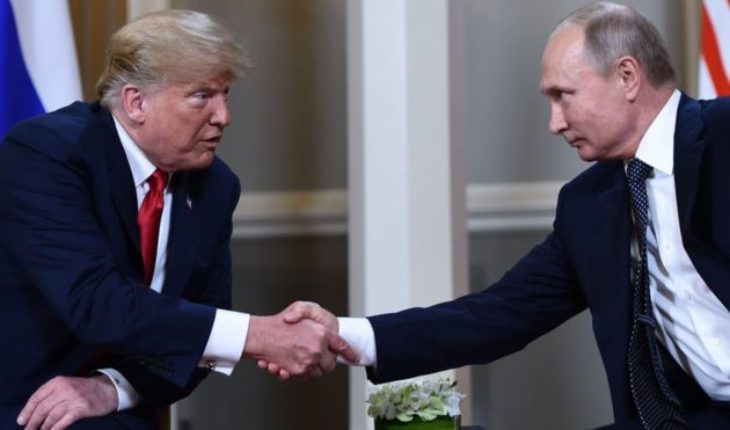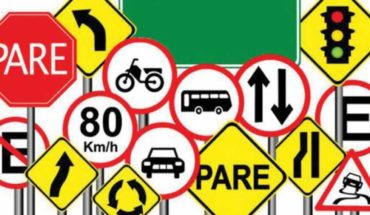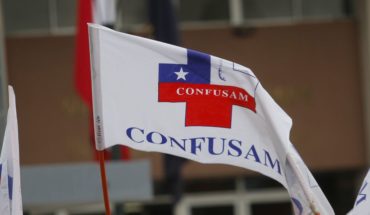Moscow became a key part of the Venezuelan crisis, Point that the United States points to it as responsible for maturing to remain in power following the call of the opposition to overthrow it last Tuesday.
The Kremlin has refused to dissuade Maduro from leaving Venezuela on a plane to Cuba as he claimed without providing proof Washington, which promotes a change of government in the South American country.
But it has been ostensible to send two planes with Russian military to Caracas in March, or the ignited defense that Russia made mature at four United Nations Security Council meetings this year.
American President Donald Trump came to warn Moscow recently that he has to “leave” Venezuela, but nothing indicates that this is going to happen for now.
Trump and his Russian pair, Vladimir Putin, discussed Venezuela in a telephone conversation this Friday and both agreed that they would like “something positive to happen” in that country, according to the American.
“He [Putin] He is not thinking at all about getting involved in Venezuela, “Trump said, contradicting the official stance of his own government.
But the truth is that there is also no sign of a rapprochement between the two military powers over Venezuela’s fate.
A Russian-flagged plane was seen at Caracas International Airport in March.
Andrey Kortunov, director general of the Russian International Affairs Council, explains in this interview with BBC World why the positions of Washington and Moscow are difficult to reconcile.
The following is a summary of the telephone dialogue maintained with Kortunov from Moscow, who holds a doctorate in history and is a renowned expert on Russian foreign policy.
What is Russia doing in Venezuela?
Venezuela is a partner of Russia in many respects. There are several energy projects that Russia has in Venezuela. The country is a destination for large Russian investments, probably US $17,000 million in oil exploration and production.
Venezuela is a Russian partner, buys him a lot of guns. And I would say that it supports Russia in most geopolitical issues.
Geopolitically, what can be the reasons for Russia to have that presence in a country that America considers under its own area of influence?
Geopolitically, Moscow sends a signal to Washington: if you get into our backyard, you should expect us to have some participation in your backyard.
Venezuela is clearly not the only Latin American country where Russia has a presence. We can also talk about Cuba or Nicaragua. But Venezuela is larger and arguably has a greater impact on regional policies.
So I would say that Russia’s idea is to seek some understanding with the United States about not interfering in the other’s neighborhood?
We can’t expect any kind of deal between Moscow and Washington. Washington cannot promise Moscow not to interfere or engage in the post-Soviet space. Similarly, Moscow cannot give Washington any formal guarantee that, say, it will leave Latin America.
But there may be some implicit understanding of the rules of engagement. We saw the attempts to establish these rules since the Cuban missile Crisis. Both countries are sensitive to their immediate environment. None want others actively involved there.
The question is to what extent can there be an implicit understanding of the sensitivity of these issues between Moscow and Washington today.
Venezuela and Russia, an alliance that annoys the United States.
And what do you answer to that question?
I’m not very optimistic. I don’t think the U.S. government is ready to treat Russia as a couple. For Washington, Russia is a rebel state that interferes with other countries ‘ affairs. I don’t think Trump is willing to talk to anyone the same way, his Government assumes that the U.S. rules and others follow.
But I can imagine some agreements in areas that are less important to America. For example, I think it is easier for Trump’s government to make a deal with Vladimir Putin in Syria than in Venezuela, because after all, America is not particularly interested in Syria: it is far away, it has no oil…
But Venezuela is very close, it is too important and definitely more sensitive to Trump’s government than Syria or some other countries.
Do you think Putin has a detailed strategy for Venezuela?
I’m not sure there’s a strategy. I think there is an intention to support the StatusS Quo Political, but at the same time it is clear that some reforms are needed.
So in Moscow the official line is: We are not against negotiations between mature and the opposition, we are not against anticipated elections, anything that can change the situation for the better, but we are against a coup, an unconstitutional change Of government that could lead to a civil war.
Maybe there’s a strategic plan, I’m not aware of that anyway. But Russia definitely wants to be in Venezuela for a while because the size of Russian investments is very significant and I do not think the Kremlin is ready to lose those investments.
Russia not only has rights to oil fields in Venezuela, but also has part of CITGO, the Venezuelan oil company in the U.S., as a guarantee of Rosneft (the Russian state oil) for loans granted to PDVSA. Are these assets and money a key concern for the Kremlin?
I think it may be a concern because there are some lessons that Russians can learn from recent history.
For example, they had many investments in Libya — not only in the energy sector but in transport, infrastructure, and other fields — and after the demolition of Qaddafi’s regime, most of those investments were lost. I assume you do not want to repeat it in Venezuela, but of course it is a question of how to secure your investments.
It could be argued that Russia should contact the opposition and agree that they will honor the commitments made. But I don’t think Russia is looking for that.
America argues that the mature government is not legitimate and claims that it seeks to promote democracy in Venezuela. But Russia, and you in particular, don’t seem to see it that way…
The question is who decides in this world what is legitimate and what is not. If the decision is made in Washington and all other countries should simply follow Washington’s orders, then we should change the whole international system.
Russia insists that its support for Maduro is a defence of international law and the principle of non-intervention. But many believe that this, more than principles, is a subject of practical objectives for Russia, economic or geopolitical as we argue. Isn’t it?
There are probably several incentives for Russia to act as it is doing. There may be economic interests, but it would not exclude political considerations as well.
Russia does not want to see a precedent established in Venezuela that will be repeated in other parts of the world. And this is a position that President Putin has consistently promoted since his first day in power. So I can imagine that there are pragmatic interests, but I would not rule out a matter of principle either.
The spokesman for the Russian chancellery, Maria Zakharova, has denied that her country deterred mature from leaving Venezuela.
Some analysts see a danger of reaching a point where the U.S. should cede or initiate military operations in Venezuela. Are Moscow and Washington taking too many risks, playing with fire in Venezuela?
The reality is that we do not know how each side works in this difficult situation. We can only hope that both sides will show a degree of prudence, at least by trying to avoid a direct military shock, as they do in Syria.
But, definitely, Russia cannot compete with the U.S. militarily. Russia cannot resist a large-scale U.S. intervention in Venezuela, as it was not in a position to resist U.S. intervention in Iraq in 2003.
I think that if Trump’s government decides to intervene, Russia’s reaction would be confined primarily to diplomatic statements, perhaps it would seek to appeal to the United Nations. But I don’t see a situation where Russia tries to confront the U.S. militarily in Venezuela.
I don’t think Trump’s government is going to decide to intervene either. His government has no appetite for interventions abroad, Congress may disagree with such intervention and Latin America’s reaction would not necessarily be positive.
Trump’s government is likely to continue to increase its economic pressure to mature, assuming that at some point it will be abandoned by its own officers, the military will change allegiances and the government would fall. Of course this strategy reduces the dangers of direct confrontation with Moscow.
translated from Spanish: “It’s easier for Trump to make a deal with Putin in Syria than in Venezuela”
May 4, 2019 |





